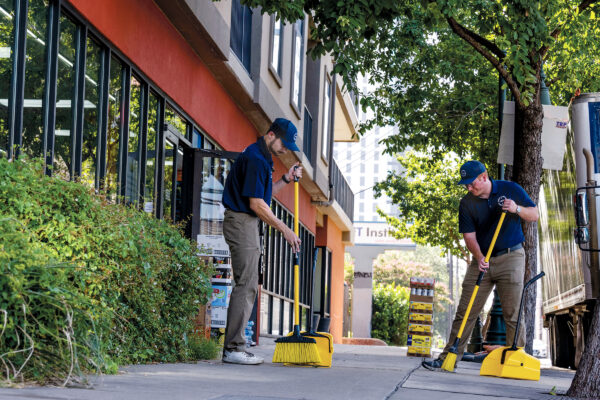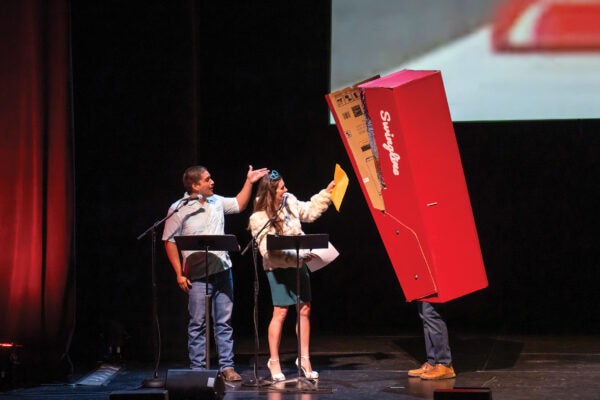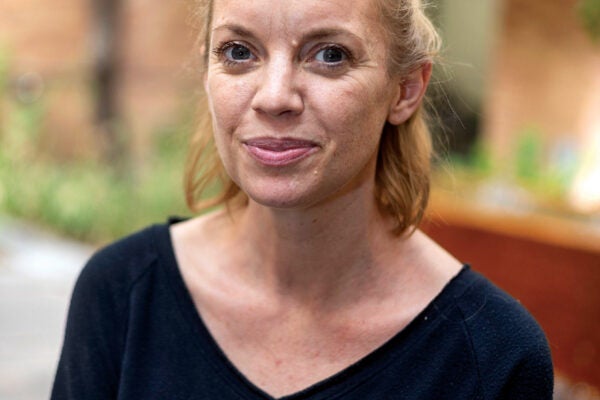The neighborhood west of Guadalupe Street, known as West Campus, has long presented the University with a conundrum: It isn’t UT property, but it is overwhelmingly populated by UT students. Their experience in West Campus is part of their college experience. In addition, hundreds of staff and faculty members must park in the neighborhood and walk to campus.
But that experience hasn’t been always a positive one. For years, the area has been subject to the challenges many urban areas face, including litter, graffiti and homeless people.
“How does campus and the surrounding area make people feel welcome, that they are safe, and that it is that kind of campus feel that we know and love?” UT President Jay Hartzell asks. “Beyond the health and safety of our students, we also place a big priority on trying to find more ways to get our students to live close to campus, to engage with campus, to feel like they want to spend time on campus. This is part of that effort.”
In the words of one UT staffer, West Campus is not our responsibility, but it is our problem.
In 2020 the UT System Board of Regents decided to do something about that problem. It allocated $8 million to address the often embarrassing and occasionally unsafe environment that greets students, employees and visitors to the Forty Acres.
A UT Police Department (UTPD) satellite office opened that year at 25th and Guadalupe streets. It will soon relocate to 2400 Nueces St., an area of higher foot traffic. The same year, UT installed five high-activity location observation (HALO) camera systems in West Campus; they are monitored by both UTPD and the Austin Police Department (APD).
In 2021, UTPD dedicated approximately 1,000 patrol hours per week to West Campus. In 2023, it added 882 patrol hours per week.
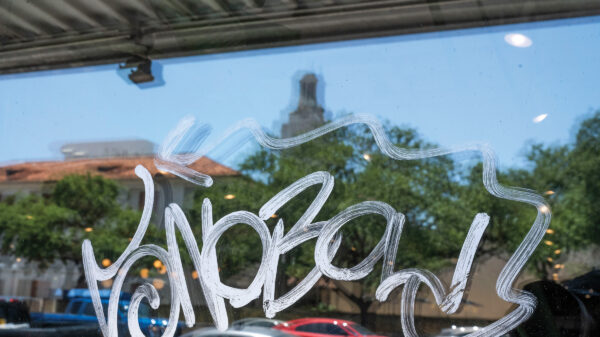
Eve Stephens, who is UT’s chief of police and who took office in July, says: “With the increased focus on West Campus over the summer, we dedicated a targeted patrol — a bike patrol and walking beat — to the area. Having that presence out there was very welcome by all the community.” Stephens, who comes to UT from the APD, began her career in 1999 patrolling the West Campus neighborhood, which APD calls Baker Sector, so she is familiar with the area.
On Aug. 7, UT launched one of its most significant efforts to improve the neighborhood, the West Campus Ambassadors. The one-year pilot program is managed by the national company Block by Block, which specializes in the restoration of business districts. Dressed in easily identifiable blue shirts, safety ambassadors provide UT and Austin police with extra eyes between 3:30 p.m. and 3 a.m. They patrol the area on foot and bicycle and by truck, sharing safety resources and tips, and escorting residents to their destinations in the late evening.
“It’s no secret that policing nationally is short-staffed,” Stephens says. The Austin Police Department is only 65% to 70% staffed, according to recent data.
Similarly dressed cleaning ambassadors sweep sidewalks, remove graffiti, pull weeds and stand scooters upright. In the first 10 days of the program, they had picked up 4,000 pounds of trash and removed over 750 pieces of graffiti. They also provide hospitality, such as greeting visitors, giving directions and de-escalating situations involving homeless people.
UT is encouraging shared investment in the area, and by the end of August, more than 45 businesses and community organizations had pledged support for the effort.
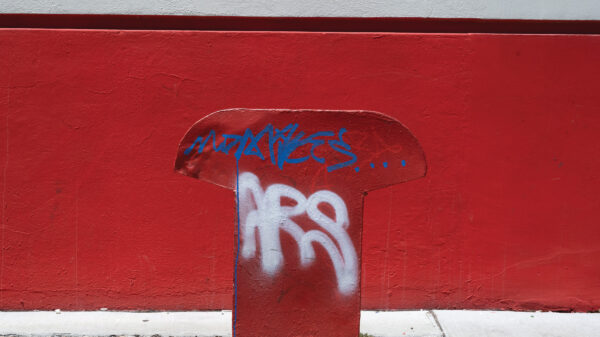
Asked if there is a connection between cleanliness and safety, Stephens cites the broken-windows theory in criminology. “If you are invested in a place, criminals think twice about targeting it. If you are invested in a place, then you’re probably invested in the safety of the place and catching the criminals. If we can create a space that is not welcoming to crime, graffiti, trash, vandalism or any kind of disorder, then we are making an investment in this place, and if you come and attack it, then we’re going to pay attention.” She adds that environmental design can also make places safer.
Of the overall West Campus effort, Hartzell says, “We believe that these investments have successfully deterred crime and helped address safety perceptions, consistent with the observed 8% decrease in incidents (year to date) over 2022.”
As for the homeless population, “If there were any easy solution, we would have solved it by now,” Stephens says. “It’s not illegal to be homeless, but it is illegal to do certain things. If we try to arrest someone for what they’re doing, what we find when they take them to jail is that the jails are so packed with others that it’s really a catch-and-release kind of thing. Sometimes the officers will see them back out there before they’re even done writing their reports.”
“It’s not just the cops, or the courts, or the jails — it’s a multiagency, complex situation,” she says. “With repeat offenders, we really have to talk about long-term solutions when it comes to mental health. This is not a policing problem; this is a societal problem, and unfortunately society has not come up with the answer. We are bound by what the law tells us we can and can’t do.”
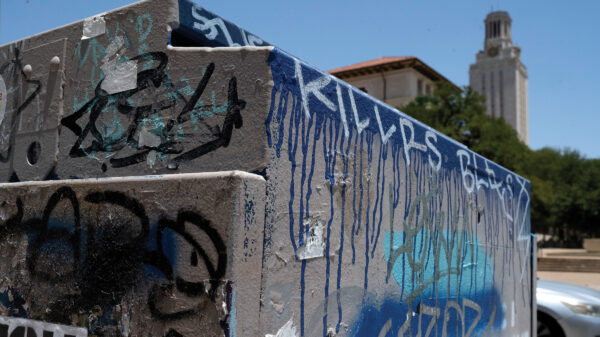
To increase safety further, Stephens encourages all staff and faculty members to download the LiveSafe app, which lets you text the UTPD dispatcher.
Kevin Eltife, chairman of the UT System Board of Regents, says: “Reviving and restoring the West Campus neighborhood is essential. It will produce much-needed change, and we want to play an active role in the program’s success.”
Hartzell adds: “We want to make sure that when people are considering whether to attend UT, they’re moving in or visiting, it connotes the right atmosphere, one befitting a world-class, top research university. This investment is the next phase of us addressing some of the challenges of growth and density in a way we think will further support a vibrant campus community.”
For more information on the West Campus Ambassadors, see wcambassadors.org, email info@wcambassadors.org or call 512-429-3278.
